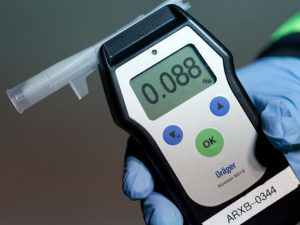Point .05 BAC Bills Stall
Influential advocacy groups MADD and Advocates for Highway and Auto Safety enter the fight.
 Bills in California and Oregon to lower the blood alcohol content (BAC) limit for driving under the influence (DUI) to 0.05% have stalled in the legislature. A similar bill in Michigan is still being deliberated. More encouragingly, the advocacy and public safety groups pushing for this life-saving limit have been joined by Mothers Against Drunk Driving (MADD), one of the strongest anti-DUI voices in the country, and the D.C.-based Advocates for Highway and Auto Safety, promising these issues will not go away quietly.
Bills in California and Oregon to lower the blood alcohol content (BAC) limit for driving under the influence (DUI) to 0.05% have stalled in the legislature. A similar bill in Michigan is still being deliberated. More encouragingly, the advocacy and public safety groups pushing for this life-saving limit have been joined by Mothers Against Drunk Driving (MADD), one of the strongest anti-DUI voices in the country, and the D.C.-based Advocates for Highway and Auto Safety, promising these issues will not go away quietly.
Under the guidance of the Liam’s Life foundation, California State Senator Jerry Hill and Assembly Member Autumn Burke introduced AB 1713, a 0.05% BAC bill. However, that bill has failed to advance from committee, leaving it on ice at least until next year. Likewise, Oregon Senate Bill 7, introduced by Senate President Peter Courtney, will not move forward despite vocal support from the governor.
“These legislatures need to get their priorities in order,” said Michael Scippa, Public Affairs Director of Alcohol Justice. “Lower BAC limits are evidence-based and popular. Simply put, point 05 saves lives.”
Efforts to lower the DUI threshold have been evidence-tested throughout the developed world. As of 2015, 34 countries had BAC limits of 0.05% or less, including Australia, France, Germany, and Italy. All in all, 2.1 billion people live in countries with the lower DUI threshold, making the U.S. an exception with its 0.08% standard. That exception may be coming to an end, however. Already, the state of Utah has lowered its threshold for DUI to 0.05%, and in recent years, Washington, New York, and Hawaii have joined California, Oregon, and Michigan in considering a similar limit.
The law represents a simple and direct way to prevent alcohol-related deaths. Researchers estimate that a nationally adopted 0.05% BAC level for DUI would save 1,800 lives annually. The life-saving benefits do not simply accrue because of more arrests. Researchers looking at lowered BAC limits in other countries noticed a drop in fatalities at all BAC levels, not just between 0.05% and 0.08%. This suggests that, regardless of police action, drivers see the lower limit as a cue to not drive after drinking.
Recognizing the power of policies promoting the 0.05% BAC, MADD threw its support behind the California and Michigan efforts. “We want to do everything we can to stop these tragedies [of impaired driving deaths],” said MADD National Board Member Carol Leister in a prepared statement. “That’s why MADD made the decision this year to support any state that seeks to lower the BAC threshold to 0.05.”
Advocates for Highway and Auto Safety, meanwhile, placed a blistering op-ed in the Washington Times, criticizing industry complaints that lower BAC limits are unfair or mistargeted. "Measurable change comes from effective leadership implementing data-driven, research-backed countermeasures such as .05 percent blood alcohol concentration policy," the authors write. "Progress in the fight against drunk driving has been stalled for decades, and new, proven solutions are urgently needed."
MADD has also supported another bill from Sen. Hill of California, SB 545, strengthening the requirements that convicted DUI offenders install ignition interlock devices. Leister declared the law was “long overdue in California.” That bill is currently in front of the senate Appropriations Committee.
READ MORE about Liam’s Law and the fight for Point 05 in California
READ MORE about how Point 05 Saves Lives